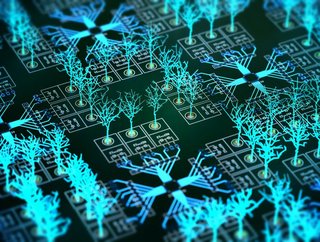Could artificial intelligence help to save our planet?

According to a new Forum-PwC report, released in Davos, Switzerland, there are eight ways in which artificial intelligence (AI) can help save the planet.
The first being the use of autonomous and connected electric vehicles, as the technology will catalyse the transition to mobility on-demand.
Through route and traffic optimisation, eco-driving algorithms, the programmed platooning of cars to traffic, and ride-sharing systems, transportation could contribute significantly less to greenhouse gas emissions.
With distributed energy grids, AI could perfect the predictability of demand – and in turn supply – for renewable energy.
This could amplify energy storage, efficiency, and load management, whilst also integrating renewables for better pricing for market incentives.
Smart agriculture and food systems could be developed through AI, through robotics collecting data, making decisions, and performing corrective actions.
This technology could detect crop diseases with more speed and efficiency, as well as providing timed nutrition for livestock – overall, saving on water, fertilisers, and pesticides, and creating less waste.
SEE ALSO:
-
Northern Powergrid announces £83mn programme to make the North a low-carbon leader
-
Keele University to launch Europe’s first smart energy living laboratory
With AI integrated weather and climate prediction, the world’s understanding of climate change will be more precise, as well as the cost of the research and equipment will be lowered which will creating more opportunity for scientific productivity.
Another way that AI can help improve the planet, according to the report, is through smart disease response.
The analysis of simulations and real-time data of natural disasters can enhance disaster preparation and response, including early warnings.
Intelligent, connected and livable cities could become the next AI related innovative enterprise, with the technology aiding zoning laws, building and ordinance, and floodplains.
Augmented and virtual reality could also be used to make real-time data available on energy, water consumption, and traffic flows.
AI-infused digital geospatial dashboards could allow environmental systems to be monitored, modelled, and managed to deal with issue such as illegal deforestation, water extraction, and fishing and poaching.
Finally, the report argues that AI could be used, without the requirement of input data, to enable application to real-world problems in natural sciences, such as climate science, materials science, and biology.
- Tan Delta Technology Empowers the Sustainable Energy SectorRenewable Energy
- Debunking Silicon Carbide (SiC) Myths: The Real StoryTechnology & AI
- Terabase raises US$25m for energy project construction techTechnology & AI
- How can businesses reap the benefits of mobile technology?Technology & AI






